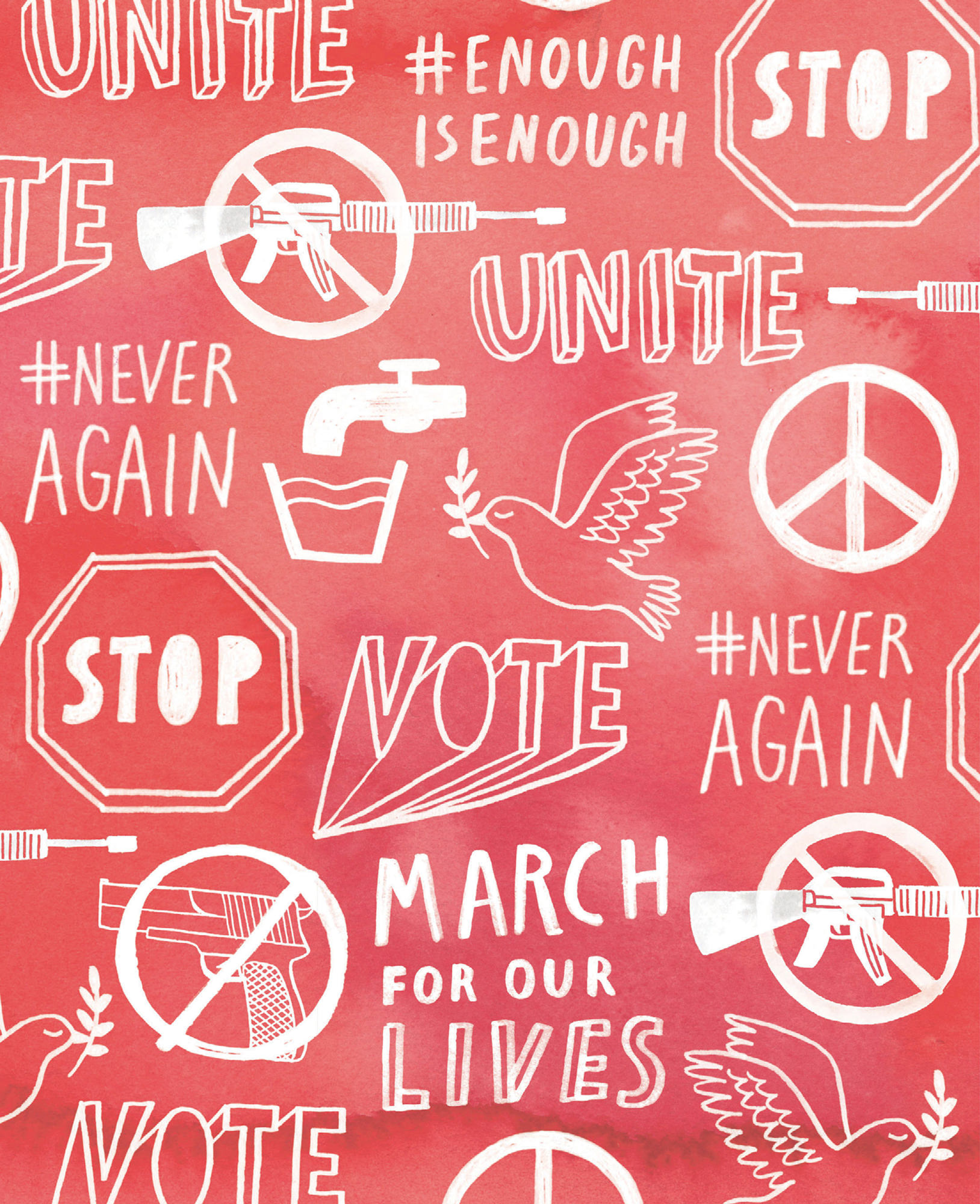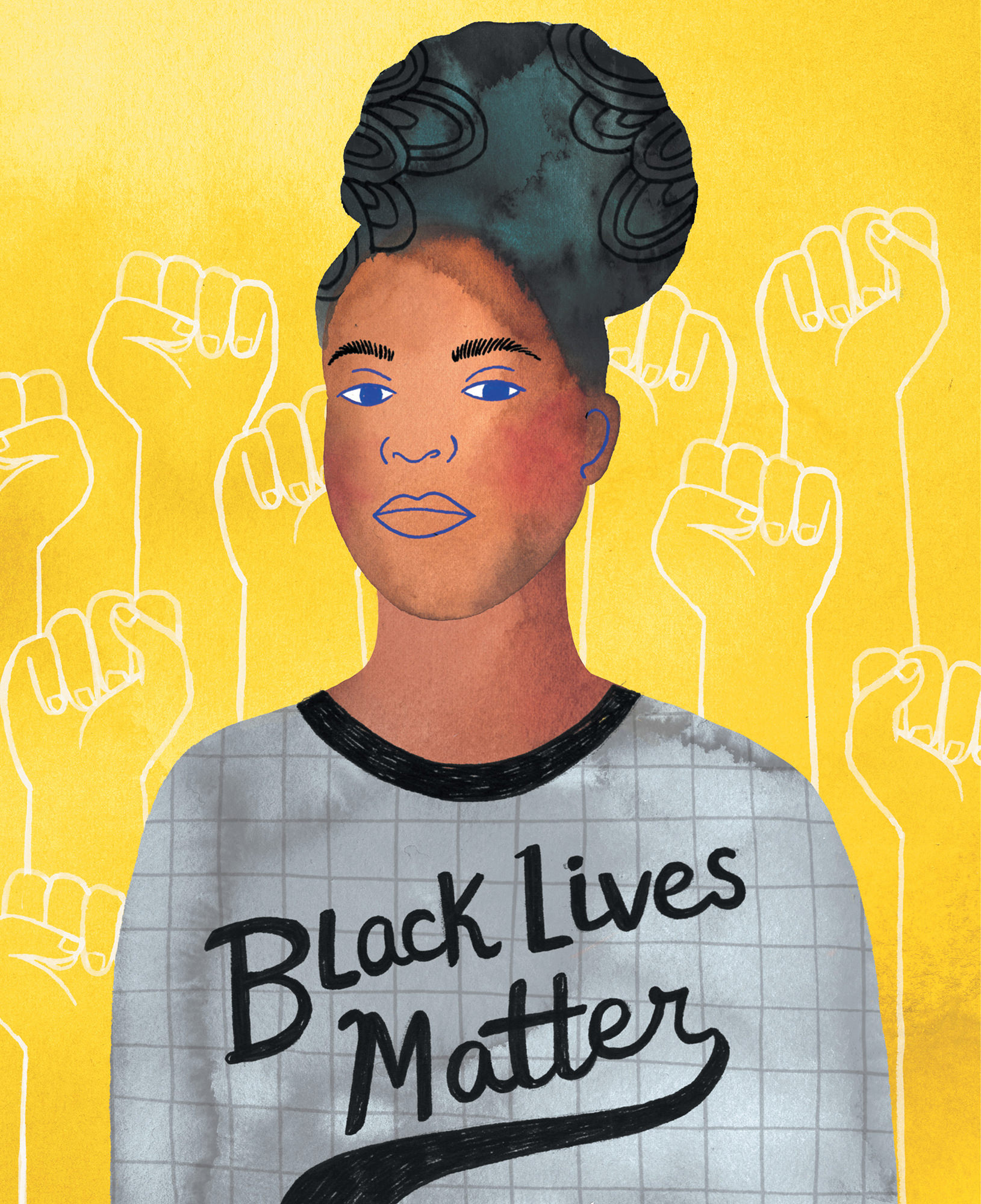
Born: 2004 Cause: Social Justice and Intersectionality in Gun Reform


We can change things, there’s hope. But there’s not going to be a change unless we make it. —Thandiwe Abdullah
One of the most amazing things about activism is that it brings together people from many different backgrounds to work toward a common goal. Maybe people are there for different reasons—a nature lover and an advocate for equality can both end up fighting for climate justice. Or maybe you’re there for the same reason but took very different paths to get to where you are. But one thing is for sure: An organization is always stronger for its diversity. Change comes faster and easier when we listen to others, learn from others, and appreciate the perspective of others.
When Thandiwe Abdullah saw that a school shooter had taken 17 lives in Parkland, Florida, she was heartbroken for the students. But she wasn’t surprised—she had been dealing with gun violence for years. She watched as the survivors started to speak up about gun control, an issue near and dear to her. But something was missing: voices like hers.
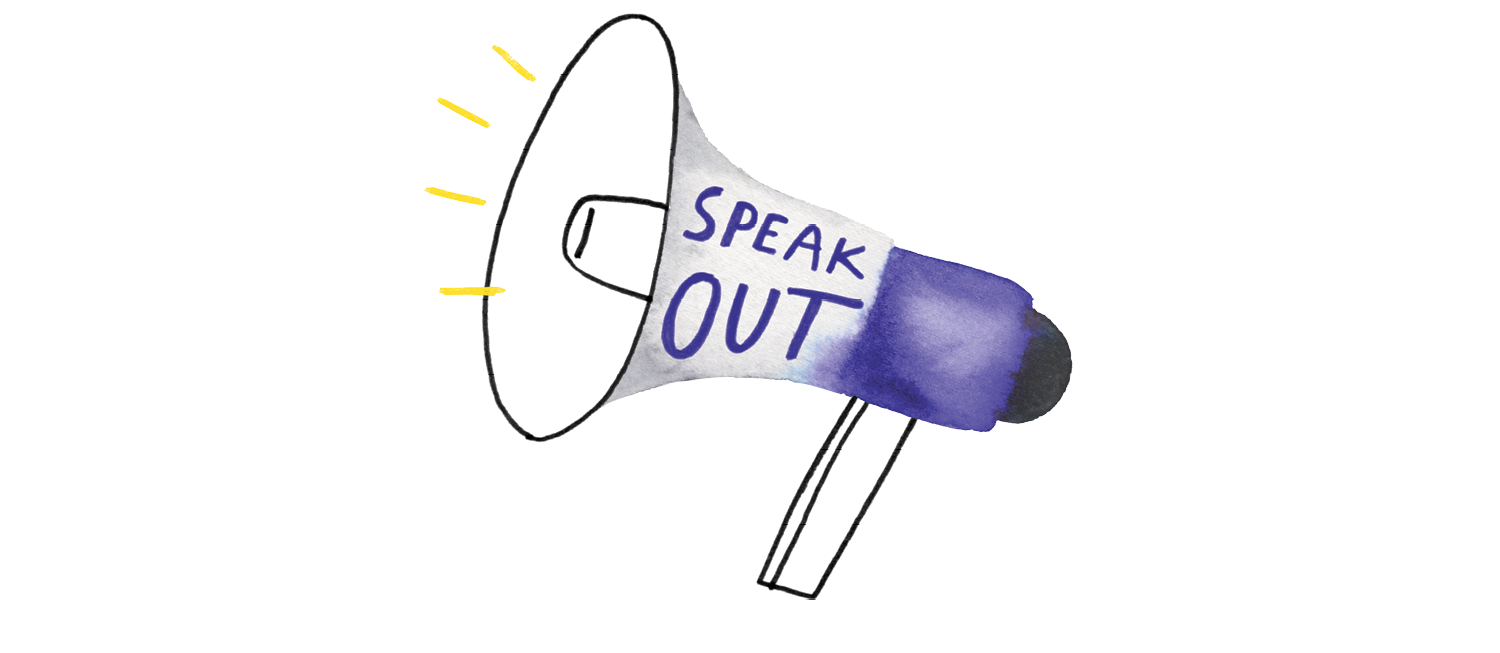
As a black, Muslim girl growing up in Los Angeles, Thandiwe’s experience was different from that of the Parkland survivors. Parkland was a wealthy community, Marjory Stoneman Douglas High was a good school, and the majority of the school’s students were white. Gun violence wasn’t really on their radar.
And that’s exactly why Thandiwe joined the #NeverAgain movement—so that she could make sure the near-constant loss of black lives to guns was on everyone’s radar. At the March for Our Lives in LA, she spoke in front of more than 40,000 people to say, “It is important that in this time, when the voices of the youth [are] being heard across the nation, that you hear from the black youth.” Thandiwe knew that people needed to see the bigger picture.
A month later, in a speech she gave during the National School Walkout, Thandiwe reminded the crowd that guns take the lives of innocent young people all too often. She named Stephon Clark (23 years old), Aiyana Jones (7), Tamir Rice (12), Trayvon Martin (17), and Anthony Weber (16). And then she said, “It’s important, when we talk about gun control, that we uplift all the black bodies that continue to be gunned down in streets and targeted in our schools.” All of the young victims she named were black, and all were killed—most by police officers—while doing nothing illegal.
Thandiwe made sure that the conversation around gun violence included the fact that black people are targeted in a way that white people are not, and it begins at school. When Thandiwe was 12 years old, her school starting using police officers to perform random searches on students. The searches became more frequent after the Parkland shooting, but at no point did the searches feel random.
Even with a largely white and Asian population at the school, it was the brown, black, and Muslim students, she says, who were pulled from class most often. And it was the schools made up of brown, black, and Muslim students that had the heaviest police presence. (This, despite the fact that most school shootings have happened in predominantly white schools at the hands of white shooters.)
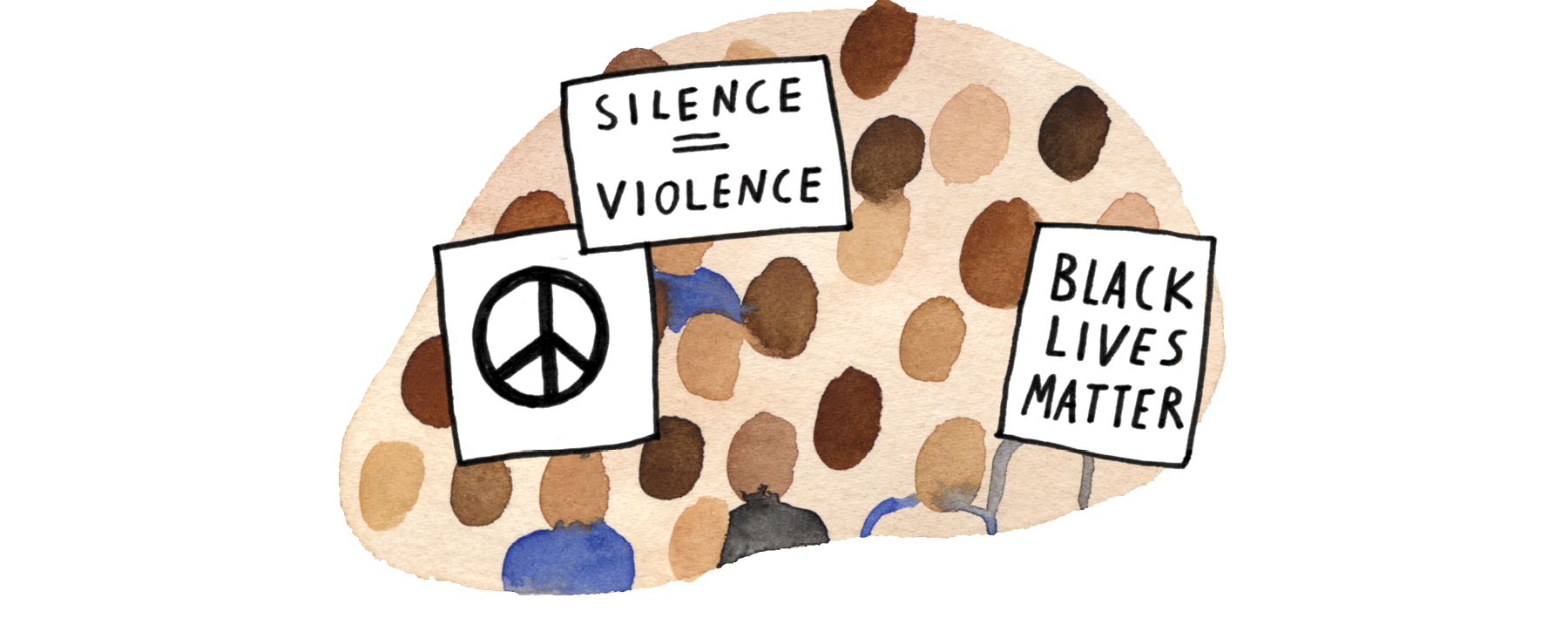
While searching for weapons, police confiscated highlighters, pens, and perfume and made many students feel less safe. After joining forces with LA-based student-advocacy group Students Deserve and fighting for three years, Thandiwe succeeded in ending random searches in 28 schools around LA. And she’s just getting started.
Eventually, Thandiwe hopes to study law and use the degree to continue her advocacy work. “I want to transform the systems that we live under from ones that oppress us to ones that empower us,” she says. The relationships with other activists and organizations that Thandiwe has forged continue to strengthen her work. Her experience may be different than the experiences of people standing with her, but they’ll always continue to be stronger together than they could be apart.
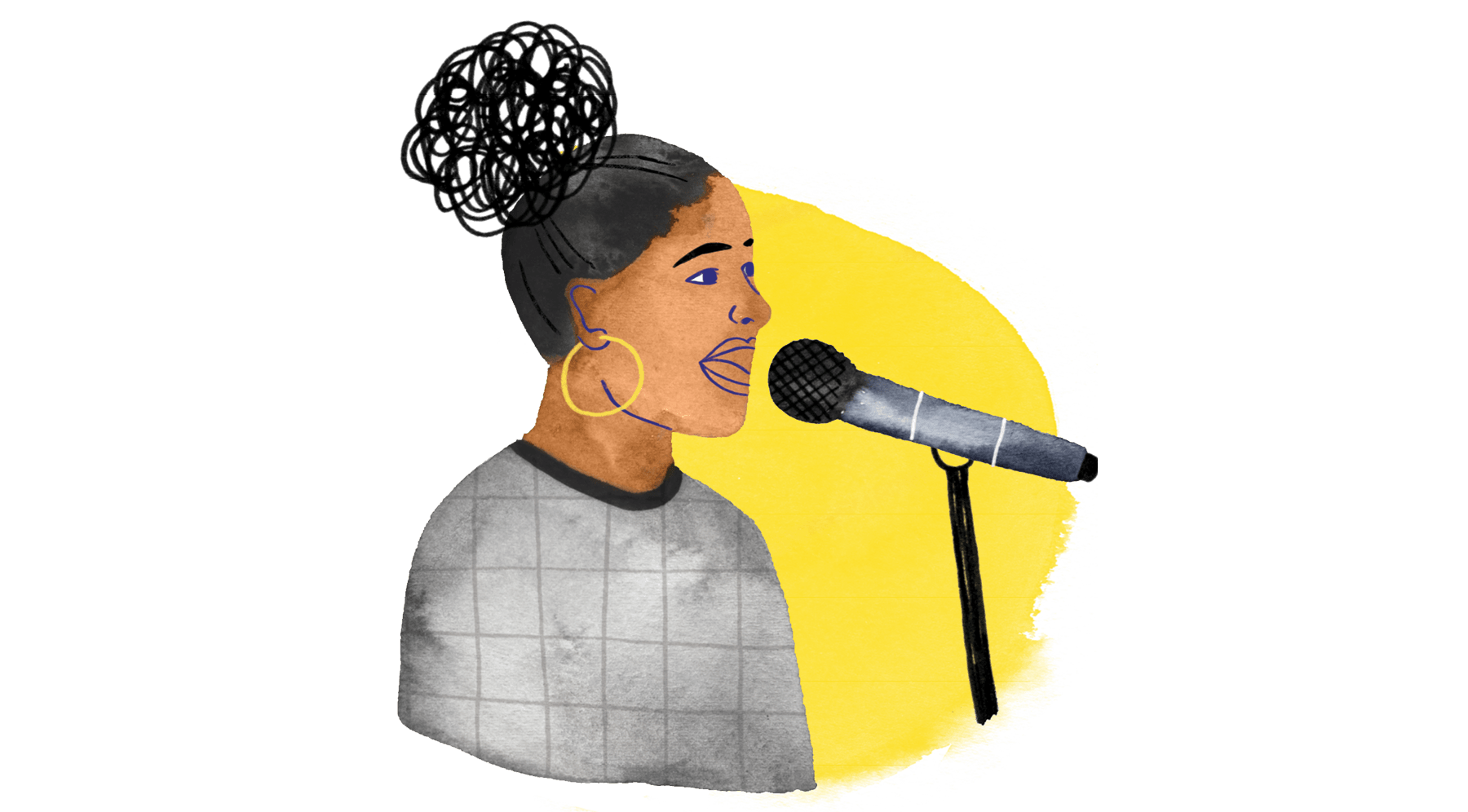
Follow Her Fight:
@thandiweabdullah on Instagram and @BLMLAYOUTH on Twitter

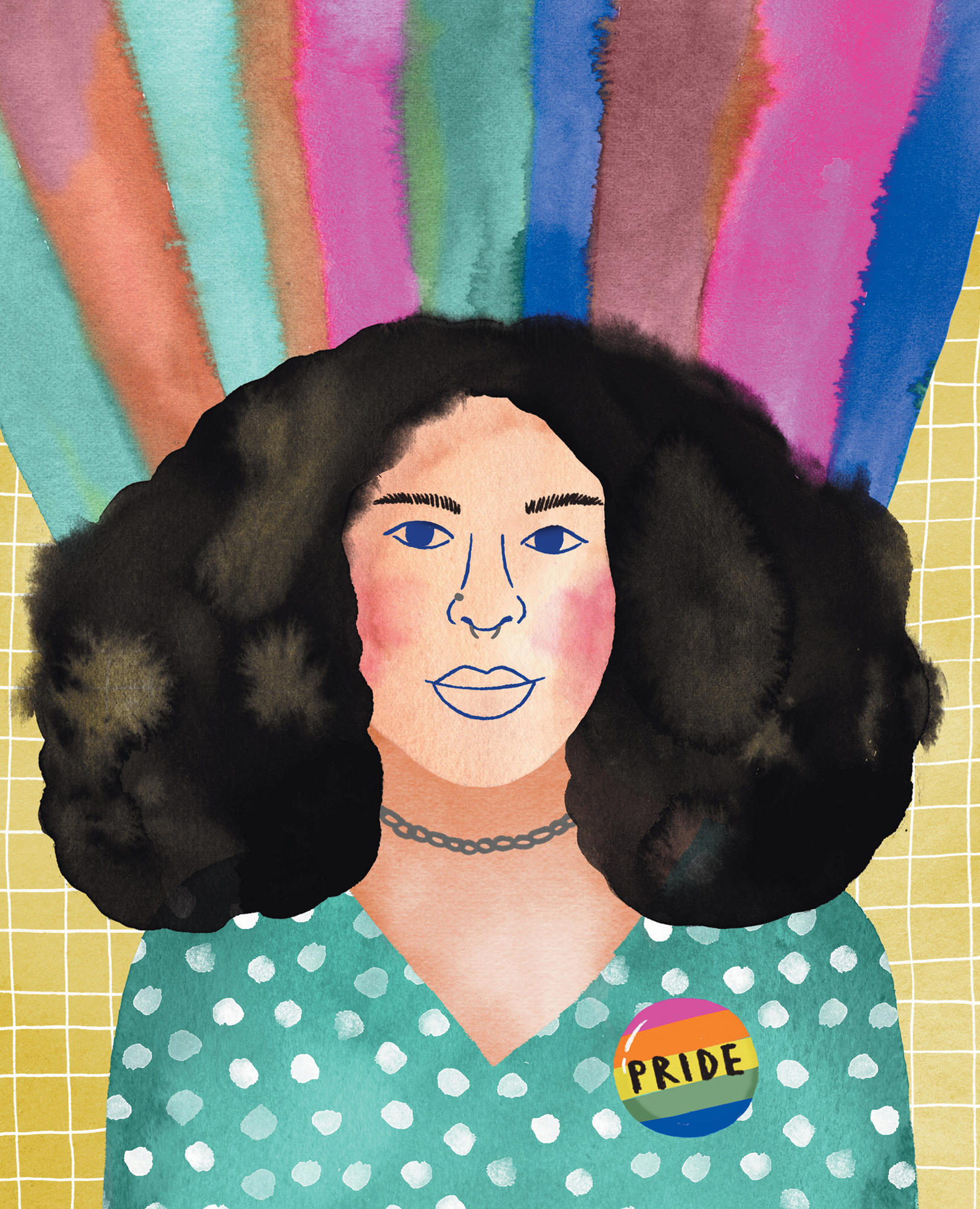
Born: 2000 Cause: LGBTQ+ Rights and Representation
Activism looks different for every single person, and you can be an activist in any way that works for you. —Sage Grace Dolan-Sandrino
Sage Grace Dolan-Sandrino has been fighting the system since she came out as transgender at 13 years old. At that age, “the system” was her middle school. Although she was ready for her transition, the school wasn’t. Administrators advised her to wait until summer and be herself in high school so that she wouldn’t be a distraction to other students.
Unsurprisingly, that didn’t work. Pictures of her transition at home spread through the school, and harassment soon followed. So, the next day, Sage came to eighth grade as her true self. “Unfortunately, I did not get the support I needed from the school,” she says. “I had to use this bathroom two flights down and across the courtyard. Teachers stopped letting me use the bathroom because I was taking so long. So I thought, ‘I don’t want [what’s] happening to me to happen to another trans student.’” That’s when she called in the cavalry.
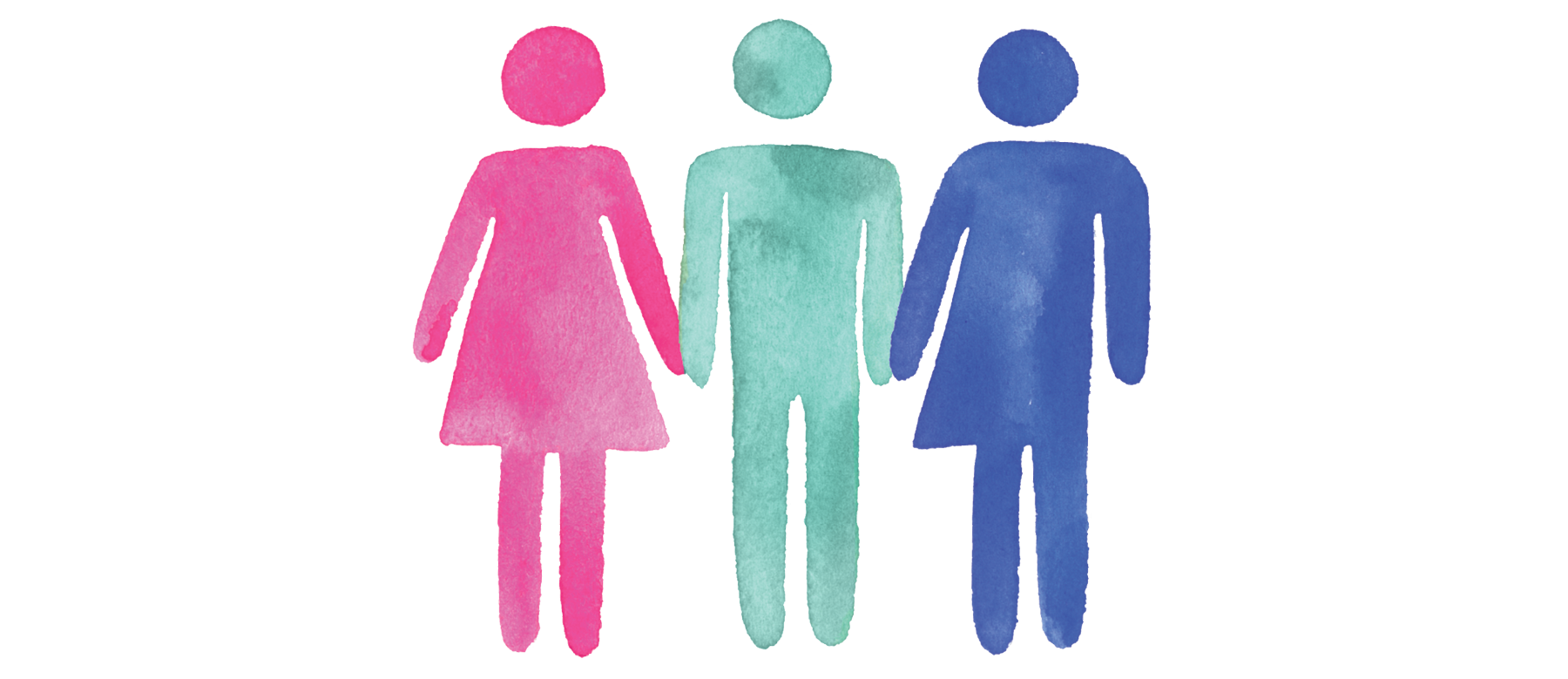
Sage reached out to the Human Rights Campaign, the largest LGBTQ+ advocacy group and political lobbying organization in the country. Representatives from the organization spoke to school administrators about how to foster an environment of inclusion for LGBTQ+ students. According to Sage, not much changed at the school: “Even after the HRC spoke to them, my school rejected sensitivity and inclusion training.” But things did change for Sage.

Knowing they needed to include new and varied voices in their mission to advocate for the LGBTQ+ community, the HRC reached out to her about consulting for them. And that led to other opportunities. “I did work at the National Center for Transgender Equality and became an ambassador for the White House Initiative on Educational Excellence for African Americans,” Sage says. She also worked with The National Black Coalition and The Aspen Institute, and as a GLAAD Campus Ambassador.
All of that advocacy work fueled Sage to do even more to speak up for the LGBTQ+ community, so she began writing. She’s written articles and op-eds on transgender issues for Teen Vogue and the Washington Post. In one of those articles, she talks about the Trump administration’s recent decisions to roll back protections for transgender people put into place by the Obama administration—protections that Sage herself had helped create.
When the Obama administration gathered several trans and nonbinary students, including Sage, to discuss discrimination in schools, they brainstormed solutions together. “Our personal experiences and lived expertise as trans and nonbinary students helped inform the May 2016 guidance on Title IX, which clarified that prohibitions on discrimination against students on the basis of their sex also included prohibitions on discrimination on the basis of gender, including transgender. We felt seen,” she wrote.
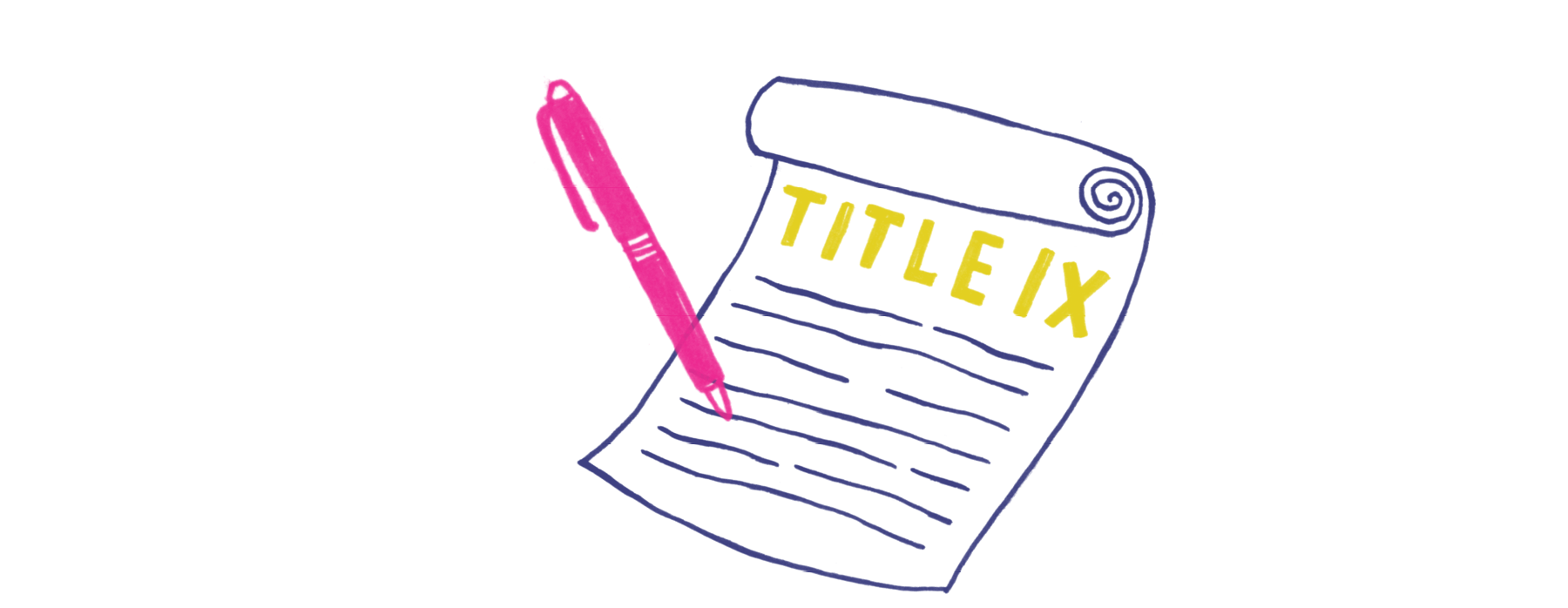
Trans people are extraordinary, strong, intelligent, persistent, and resilient. We have to be. And we will not stand for the picking and choosing of rights. We still have hope. —sage Grace Dolan-Sandrino
And then the Trump administration rescinded the guidance, even as Secretary of Education Betsy DeVos looked Sage in the eye and promised that she would protect all students. The administration is now trying to roll back an Obama-era policy to protect transgender people against discrimination in health care by defining gender as solely a biological condition determined at birth.
The trans community was outraged by the suggestion, with many saying that they felt the Trump administration was trying to erase their very existence. They responded with the social media campaign #WontBeErased, under which tens of thousands of LGBTQ+ people have posted pictures of themselves. Sage found herself fighting the biggest system in the country—the U.S. government.
For Sage, this battle is a reminder of why she’s become an activist. Organizing and speaking out doesn’t just call attention to the issues, it also calls attention to necessary actions, like voting. “If young people voted in great enough numbers, we could swing every single election. We hold the power to turn the national agenda against hatred and exclusion and toward equity and inclusion.” In the meantime, Sage has this advice for everyone who supports the LGBTQ+ community: “Be an ally. We must support each other and mobilize together. That is how we will win.”
Follow Her Fight: #WontBeErased on Instagram


Born: 1998–2004 Cause: Real Integration in Schools
Malcolm X once said, “Education is the passport to the future,” but how can we attain this passport if we are not reflected in our curriculum? —Iman Abdul, Director of Education and Engagement for IntegrateNYC
School segregation ended in the 1960s, right? That’s what is taught in most American schools, the very system involved in the Brown v. Board of Education ruling that legally ended that segregation. But if you’re a student in one of America’s major cities, like New York, Chicago, or Philadelphia, you know this isn’t always a reality. Segregation is still costing students opportunities more than 60 years after that decision.
IntegrateNYC, a student-led movement dedicated to what it calls “real integration,” is working to change that in the most segregated city in the nation. The organization’s platform demands a community-designed solution to school segregation that includes the five Rs:

We believe in the power of young people to lead today and shape the future. —IntegrateNYC
In an Instagram post, IntegrateNYC put it another way: “It’s time for us to have fair admissions. It’s time for us to get fair resources. It’s time for us to see one another as powerful. It’s time for us to be students, not suspects. It’s time for us to learn from diverse teachers.”
To achieve their goals, the members of IntegrateNYC have created social media movements, given interviews, held town halls, organized rallies, educated students and administrators on the issues, and even addressed Congress. Not only are the student members of the organization well prepared to educate the public, they’re also inventive in how they do it.

On May 17, 2019, the 65th anniversary of Brown v. Board of Education, IntegrateNYC held a “retirement party” for segregation, saying “65 years is enough.” In addition to rallying, members created and distributed their own newspaper throughout NYC with the lead-in, “Youth leaders demand action towards integration and equity in New York City Schools.” The paper laid out their issues, their demands, and their solutions. In an Instagram post celebrating the day, IntegrateNYC said, “These are the events to look forward to, to spark change, and to enlighten the next bright mind involved in such advocacy!” By combining achievable solutions with social media momentum, IntegrateNYC has created a movement that’s sure to change history.
Together, we are growing a new generation of leaders who will unite our society. —IntegrateNYC

Follow Their Fight:
@IntegrateNYC on Twitter, Instagram, and Facebook

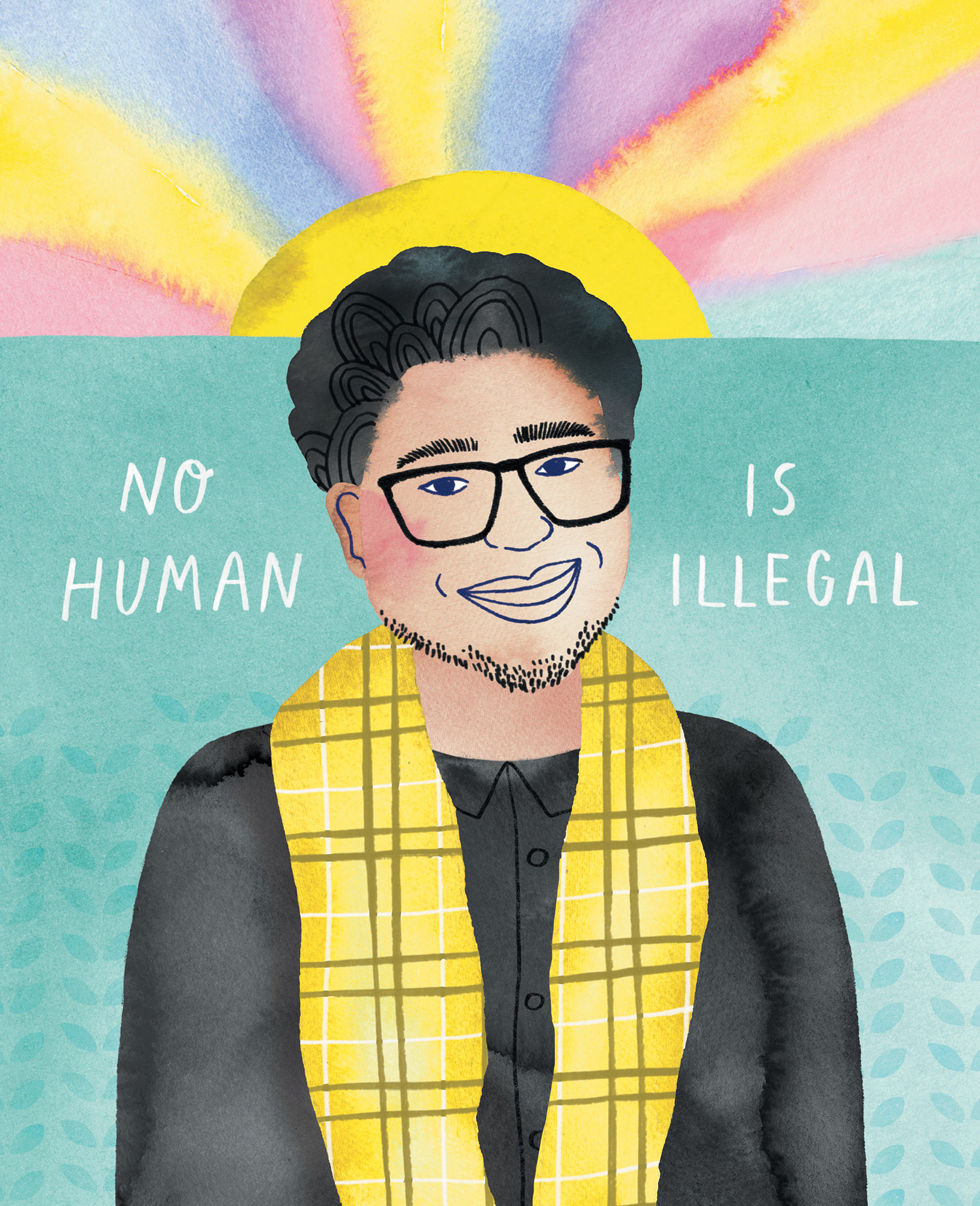
Born: 1997 Cause: Immigration Reform
I’ve never feared speaking out. I know there could be consequences, but I also know that 800,000 lives wouldn’t have been changed if people before me got scared. —Elias Rosenfeld

Imagine being woken up in the middle of the night by armed men breaking down your door to ship you off to a foreign country where you don’t know anyone or speak the language. For years, that’s all Elias Rosenfeld could imagine, and it kept him up at night. It wasn’t a recurring nightmare—it was a very real possibility.
Elias is one of nearly 700,000 young people who are currently waiting to hear whether they’ll get to stay in America, even though most have never known another home. They are the recipients of DACA, or the Deferred Action for Childhood Arrival program, which shields young immigrants from being deported by providing them with renewable, two-year permits.
Those who received DACA status had to meet a number of qualifications, including being brought to the United States as children. Most recipients were brought over when they were so young that they can’t remember their birth country. Some fled violence, which would be waiting for them if they were sent back. But with DACA, they were safe.
President Barack Obama signed the program into law in 2012, which is the same year that Elias learned that he had become undocumented. His mother held the L1 work visa that brought Elias and his sister to America from Venezuela when he was 6 years old. And when kidney cancer took her life, her visa was automatically voided. Elias had no idea until he tried to apply for his learner’s permit several years later.
By then, he was already politically active. He interned at a state senator’s office before high school and advocated for changes to health care laws for immigrant children. While the Dream Act (the legislation from which DACA recipients got their nickname: “Dreamers”) was being considered, Elias launched the organization United Student Immigrants to advocate for undocumented students. But the 2016 elections solidified his commitment to activism. That was the year presidential candidate Donald Trump promised to end DACA. In response, Elias volunteered for Hillary Clinton’s campaign.
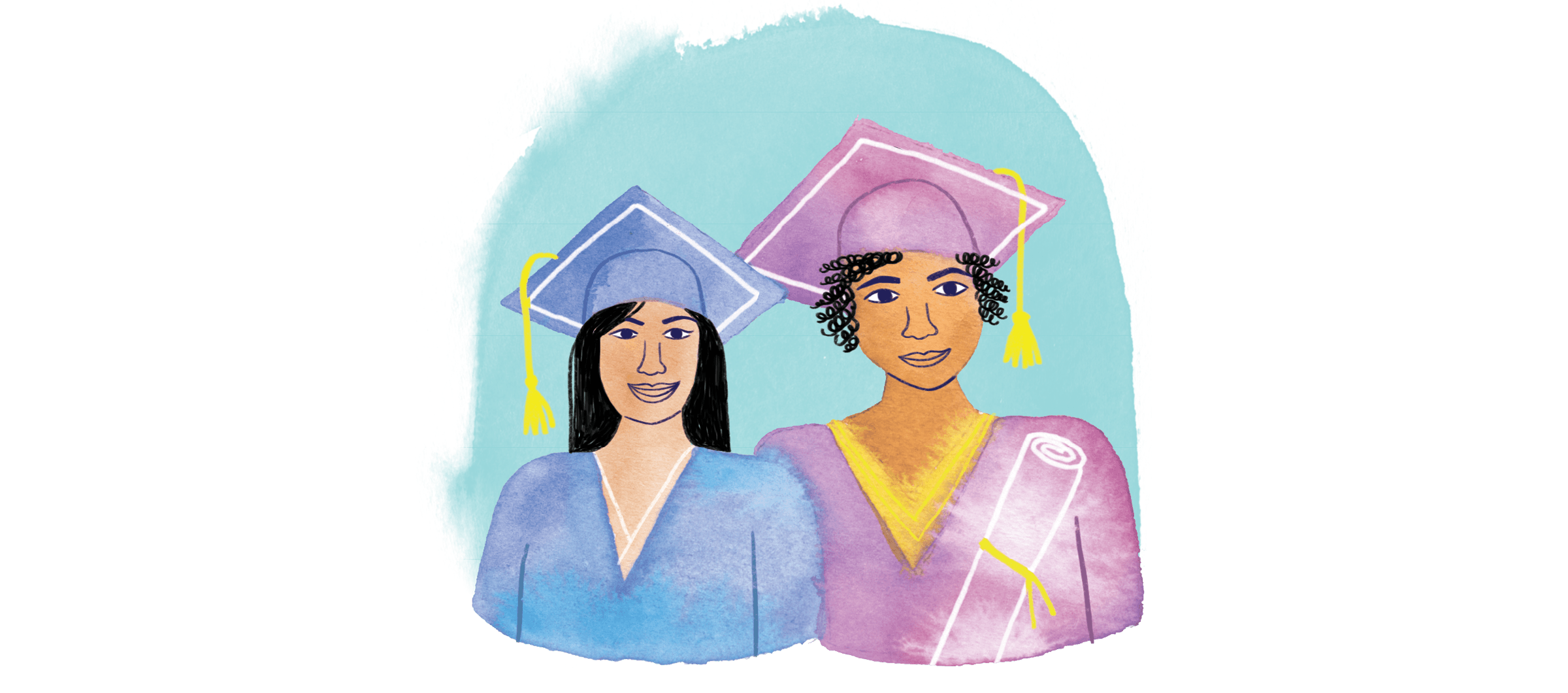
In 2017, President Trump fulfilled his promise to end DACA as part of his broader nationalist agenda. The lives of those 700,000 people were suddenly thrown into chaos. By this time, many recipients were older and had careers and families, car payments and mortgages. They, like Elias, now had to fear ICE (Immigration and Customs Enforcement) breaking down their doors, and so did their spouses and employers.
That fear is what made Elias want to take even stronger action. While many DACA recipients tried to stay under the radar, he made sure that people heard stories like his. “If people don’t know our stories, then they don’t see the complexity of the issue and they won’t pressure their legislators,” he says. He’s given interviews and spoken at rallies, but he’s also gotten involved in advocacy groups like @FWD_us and @MIRACoalition and interned for progressive Senator Elizabeth Warren.
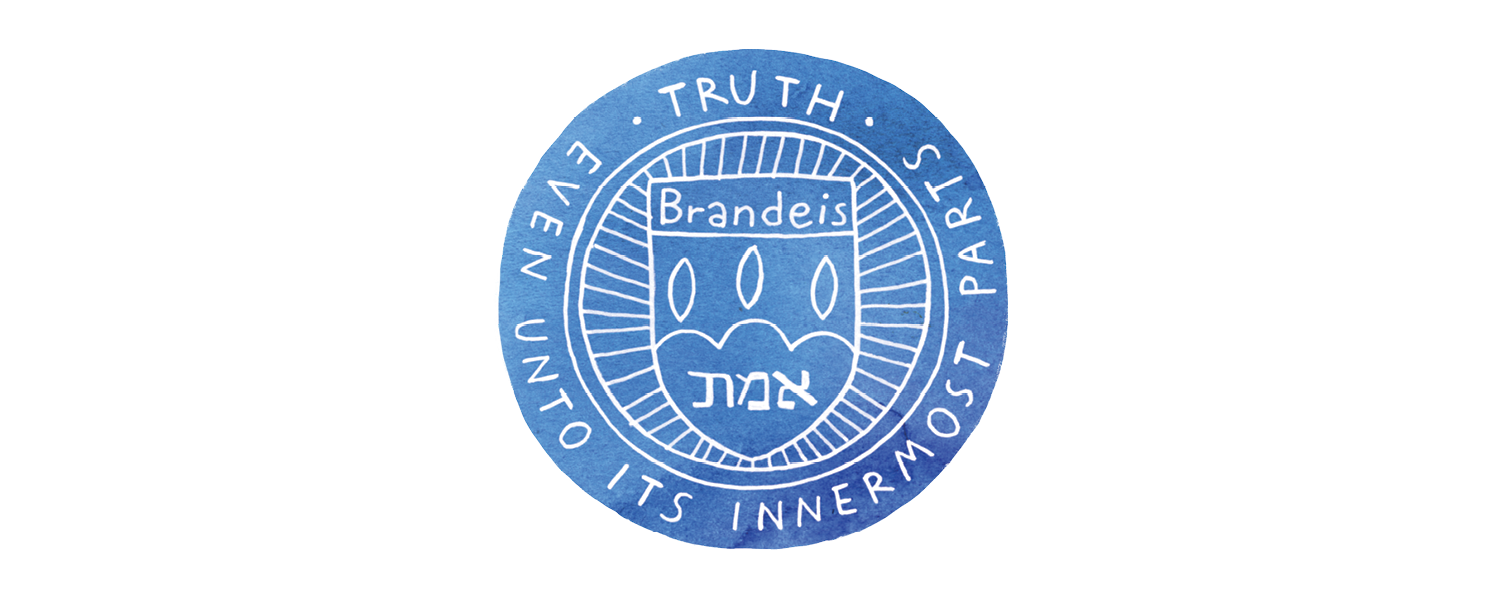
On top of that, Elias studies political science, sociology, and law at Brandeis University under a full scholarship—something that couldn’t have happened without DACA. “It’s exhausting. It can feel like I’m always under pressure,” Elias says. “But then I think about the people who fought to get DACA passed in the first place. Going to college was impossible for them. DACA made it possible for me. That’s what drives me. I don’t want people to have to walk in my shoes.”
Elias chose Brandeis because of its commitment to social justice, saying, “I knew the school would have my community’s back, for sure.” And they did. Before Trump announced the end of DACA, Brandeis president Ron Liebowitz sent a letter urging him not to. The letter said, “Here at Brandeis University, we value our DACA students, who enrich our campus in many ways and are integral to our community. Reversing DACA inflicts harsh punishment on the innocent. As a nation founded by immigrants, we can, should, and must do better.” The government may not have done better, but Elias is trying to. His fate, and the fate of 700,000 others, now rests in the hands of the Supreme Court and activists like Elias who hope to sway its opinion.
Follow His Fight: @AdvocatElias on Twitter


Born: 2000 Cause: Voting, Educational Equity, and Body Positivity
When we look at what we’re aiming to achieve, I feel like it’s important to undefine it all and to make it so expansive that you can’t help but to fight and advocate for everyone. —Yara Shahidi
Who says that you have to pick one thing to care about? Not Yara Shahidi! And she’s tired of everyone pigeonholing Generation Z into two camps: the social-media obsessed and the one-issue warriors. In choosing to make a difference wherever and whenever she can and using social media as a tool to inspire and educate, Yara is “undefining” youth activism. “We all get to contribute to this larger movement of equity, in whatever way we find natural to us,” she says. And when you tap into those natural inclinations, you tap into your real power to create change.
Scroll through Yara’s Instagram page and you’ll find posts of her gleefully eating breadsticks next to posts calling out U.S. Customs and Border Protection for human rights violations. And as far as Yara’s concerned, that’s how it should be. “There’s power in just displaying joy,” she says, and it doesn’t mean that you’re not socially engaged. Although some accuse her generation of hashtag activism (essentially, being “all talk”), Yara knows the true impact social media can have.
 “Social media matters. Twitter matters, Instagram matters,” she explains. “I now no longer have to be concerned with just the stories my newspaper is giving me, or CNN. I’m learning about iconic activists not through my school system but through Twitter, through following this other person that I admire or am inspired by. It means that there’s this new exchange of information happening.” She says that “awareness is the first step,” and young activists are using their social media influence to bring much-needed attention to their causes.
“Social media matters. Twitter matters, Instagram matters,” she explains. “I now no longer have to be concerned with just the stories my newspaper is giving me, or CNN. I’m learning about iconic activists not through my school system but through Twitter, through following this other person that I admire or am inspired by. It means that there’s this new exchange of information happening.” She says that “awareness is the first step,” and young activists are using their social media influence to bring much-needed attention to their causes.
Yara’s many causes include representation, immigration, education, LGBTQ+ rights, body positivity, gun control, and climate change. But she’s especially focused on helping young people understand the importance of voting, which can affect all of these issues. Not only did she turn her eighteenth birthday party into a voting party, complete with registration booth, she also founded an organization dedicated to making politics accessible to her generation.
Eighteen x 18 (@eighteenx18 on Twitter and Instagram) hopes to break the barrier between young people and politics so that they’re more likely to get out and vote. On its social media pages, you’ll find posts and stories about young activists, current events, and common political terms and processes so that everyone can feel comfortable talking about issues and heading to the polls. But the most important thing Yara wants you to remember about voting is, “There’s no such thing as an off year.” Your vote makes a difference to the issues you care about in every election, big and small. (If you need a visual reminder, just pick up the Yara Barbie!)

When you look around at all of the amazing young activists in the world, it’s easy to think you’re not doing enough. But you are! Yara wishes people would realize that and celebrate themselves more often. “So many times we look at other people and we are able to acknowledge all of the amazing things that they’re doing,” she says, “but hardly do we do that for ourselves.”
Try this: Without comparing yourself to anyone else, take a step back and think about all of the little ways you’ve tried to make a difference in someone’s life. And remember, you don’t have to lead a rally to make a difference. You can hold the door open for a stranger, compliment a friend’s shoes, invite the new kid to sit with you at lunch, or even take your dog for a long walk. If your goal is to make someone happy, you’re making a difference. Celebrate that!


Born: 1996 Cause: Democracy for Hong Kong
Perhaps success is far off. But even if we could turn back the clock, I would still choose civil disobedience. It is a responsibility our generation bears, and we will not hold back until the day democracy arrives. —Joshua Wong
Growing up in America, it’s easy to take your rights for granted. If you disagree with your government, you can say so in a news article, stage a peaceful protest, vote for candidates who share your beliefs, or even run for public office yourself. No matter what, you get a say. And by using your voice, you can make a huge difference.
That’s all Joshua Wong wants for Hong Kong—the right to have a say. Right now, Hong Kong’s leader, or chief executive, is chosen from a pool of candidates who are pre-approved by the Chinese government in Beijing. But communist China is very different from the more democratic Hong Kong region, which means that their chief executives aren’t usually people Hong Kongers would choose, given the chance. And Joshua thinks it’s about time that changed.
Hong Kong may be small, but its people make it great.
—Joshua Wong
Ever since high school, Joshua has noticed that the pro-Beijing picks for leader of Hong Kong are quietly trying to chip away at the freedoms Hong Kong was promised. And he’s not having it. When the government tried to require that schools teach subject matter praising the Communist Party of China, Joshua saw it as a move to brainwash Hong Kong’s youth. Together with classmate Ivan Lam Long-yin, Joshua started Scholarism, a pro-democracy student activist group focused on educational, political, and youth policy. In just one year, he went from handing out leaflets to leading a political rally of more than 100,000 people.
The government dropped the proposed curriculum, and Joshua had discovered what a little civil disobedience could do. So, in 2014, Scholarism joined forces with the Umbrella Movement—a series of protests that brought Hong Kong to a standstill to demand the right for the region to pick its own leaders. (The rebellion got its name from the umbrellas protesters used to protect themselves from the police’s pepper spray.) “The peaceful, 79-day demonstrations failed to win any major concessions from Beijing,” writes Joshua, “but they did show us the potential our generation had to make a meaningful difference.”

That’s when Joshua decided to try fighting the government from the inside. Together with members of Scholarism, he founded a new political party. That party, called Demosistō, calls for Hong Kong to become permanently democratic when the clock runs out in 2047. His goal was for members of Demosistō to run for and win local office and to gain the majority in the legislature. But Beijing is putting up roadblocks wherever it can.
The Chinese government has begun to demand loyalty from all candidates, and they believe that the members of Demosistō want an independent Hong Kong. Joshua and the others have repeatedly made clear that they don’t want full independence—just universal suffrage (aka, the vote). But one by one, pro-democracy candidates have been barred from running, including Joshua himself.
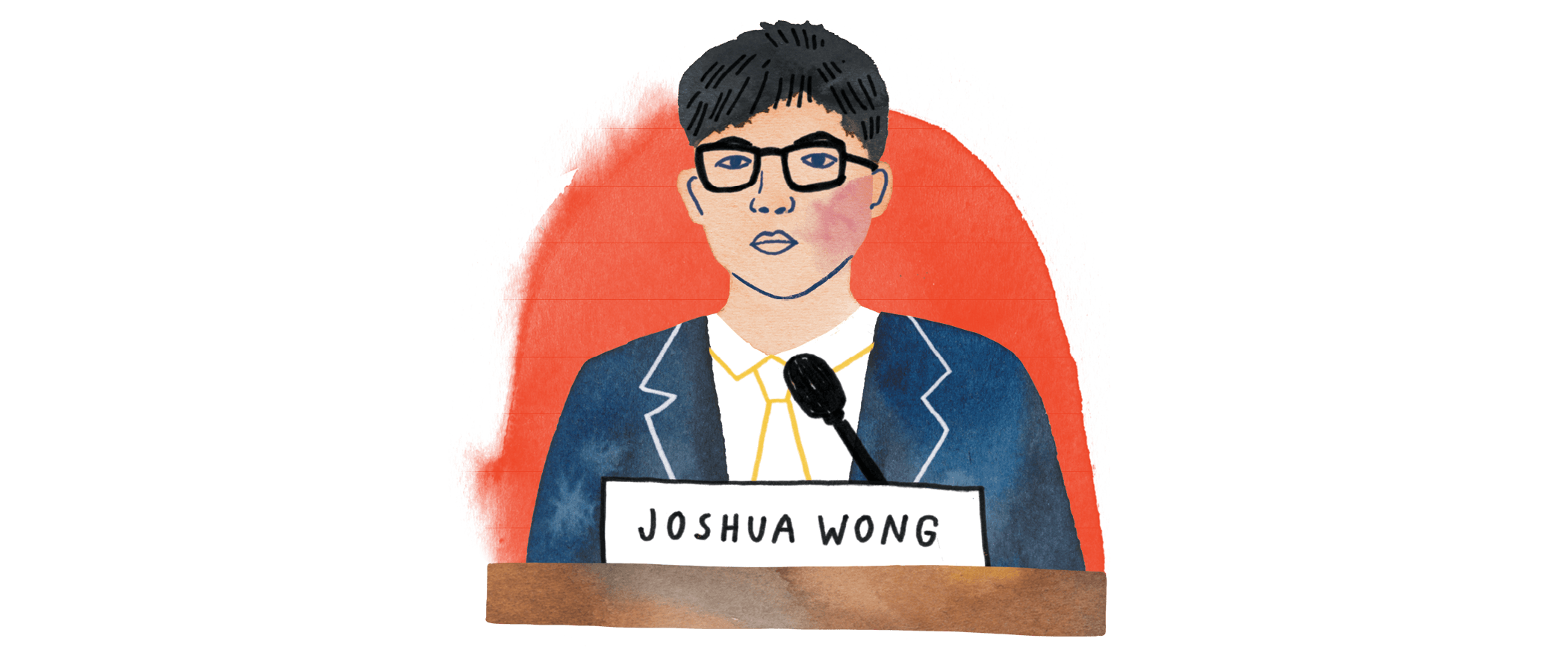
If Beijing had hoped to stop pro-democracy sentiment by quashing the candidates, they were sorely disappointed: 2019 saw the strongest pro-democracy protests yet. As Joshua said, “Adversity will only sharpen our wits and make us more strong-willed, resulting in the political awakening of more Hong Kongers, not to mention the international community’s support.” The world saw Beijing’s move for what it was—an attempt to control Hong Kong. And no one is having it.
More international allies are stepping up to help, thanks in large part to Joshua’s new role as unofficial ambassador for a democratic Hong Kong. He’s been traveling all over the world to shore up support. Thanks to his testimony in front of Congress, the United States passed the Hong Kong Human Rights and Democracy Act (which requires the United States government to impose sanctions on Chinese and Hong Kong officials for human rights abuses). So the next time you’re tempted to think that your voice doesn’t matter, think of the impact that Joshua has had, even as Beijing tries to keep him quiet.

Follow His Fight: @joshuawongcf on Twitter

